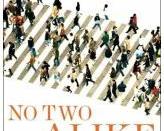Essay on Mill's theory of Liberty Brilliant exposition of the main themes. Well done!
In outlining his theory on liberty, Mill separates his discussion into two
clearly defined areas. The first, of the liberty of thought and discussion,
deals with the freedom to articulate one's opinions, the freedom to
participate in intellectual, political, religious and general debates and
arguments, and the cognate freedom of the press. The second, of the
liberty of action, attempts to demarcate the area in which an individual is
free to act upon his will, opinions and thoughts. In both, there is a
consistent attempt by Mill to impress upon his readers the manifest
benefits that would attend an atmosphere of liberty.
To Mill, one can never be certain about the veracity or mendacity of a
certain opinion or viewpoint. Any assumption of complete certainty of the
truth or falsity of an opinion is an allusion to the infallibility of man.
In
addition, those who assume this, and consequently stifle an opinion,
exclude all others from hearing that opinion, thereby imposing their own
version of certainty ( as opposed to absolute certainty ) on them. Thus,
Mill writes ' We can never be sure that the opinion we are endeavouring
to stifle is a false opinion; and if we were sure, stifling it would be an evil
still.'
One obvious benefit from allowing an opinion to be expressed would be
when that opinion turns out to be true. Then, the intrinsic value of that
truth is the reward of the person who allowed his own opinion to be
challenged. But, more importantly, the gain is not confined to the
individuals involved in the debate ; society as a whole benefits from the
exposure of a fallacy, and the elucidation of a truth.
Less palpable are the...



Clearly
I just had a paper to turn in on John S. Mill's Theory of Liberty and the textbook I have is so confusing. It wasn't untill I read your essay that it came clearer. So thanks! You made lots of good points and it helped me write my paper with much ease, I had tons of ideas.
4 out of 8 people found this comment useful.